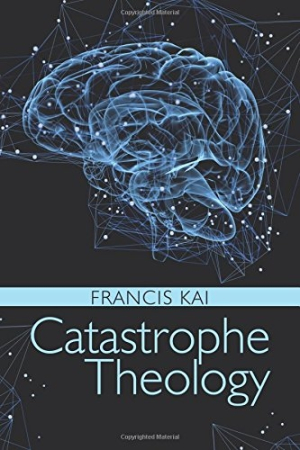Catastrophe Theology
Though it offers no easy answers, Catastrophe Theology represents an inspired search for maintaining faith in the face of disaster.
Catastrophe Theology by Francis Kai is a deep and impressive work of personal theology that aims to make sense out of a terrible loss and pain.
Drawing on the loss of his wife to cancer, Kai’s book focuses on the details of that fight and the challenge it brought to his lifelong Christian faith. It is divided chronologically into four periods: his wife’s illness, her treatment, her death, and the author’s life after. The resultant picture is complex and involves a great sweep of Christian thought and history. Catholic, Orthodox, and Protestant views of God and theology are all drawn upon.
The book successfully addresses the touchstones of Christian thought, including tradition, the Bible, and the experience of dealing with something that is inexplicable. Despite its organizing personal elements, it is first and foremost a work of theology, exploring topics including God, Jesus, and church using tradition, reason, and, to a much lesser degree, personal experience to tease them out. It argues that God is worth considering, even in the face of devastating events; its arguments are imbued with measures of faith and grace.
An engineer’s eye for detail and commitment to thoroughly understanding a problem direct the text, which presents an impressive survey of previous arguments. This is a work rich in footnotes that bridges the established battle lines between Catholic and Protestant theology.
Here, Immanuel Kant and Søren Kierkegaard rub shoulders with John Calvin and Martin Luther, with more contemporary writers also drawn in. The work plumbs their pivotal ideas, offers commentary, and pirouettes back to Kai’s story. Commentaries in Latin, Greek, Hebrew, and Chinese further flesh out this array.
This wide gathering from Christian traditions, great thinkers, and theologians accompanies Kai on his journey through grief, exemplified by the love and devotion he expresses toward his wife. His conclusions are also made relevant for others so that they can make sense of their own pain.
Still, it’s easy to get lost in the book’s rich ideas, which are almost too plentiful to make sense of. Its broad reaching becomes problematic, sometimes overshadowing the more emotional and spiritual aspects of the text.
That the lengthy work is only divided into four sections also presents a challenge. The personal chronology dominates, to the detriment of the rest of the presented material. A work with the makings of a clear and compelling systematic theology text gets somewhat muddled in the process.
Though it offers no easy answers, Catastrophe Theology represents an inspired search for maintaining faith in the face of disaster.
Reviewed by
Jeremiah Rood
Disclosure: This article is not an endorsement, but a review. The publisher of this book provided free copies of the book and paid a small fee to have their book reviewed by a professional reviewer. Foreword Reviews and Clarion Reviews make no guarantee that the publisher will receive a positive review. Foreword Magazine, Inc. is disclosing this in accordance with the Federal Trade Commission’s 16 CFR, Part 255.

